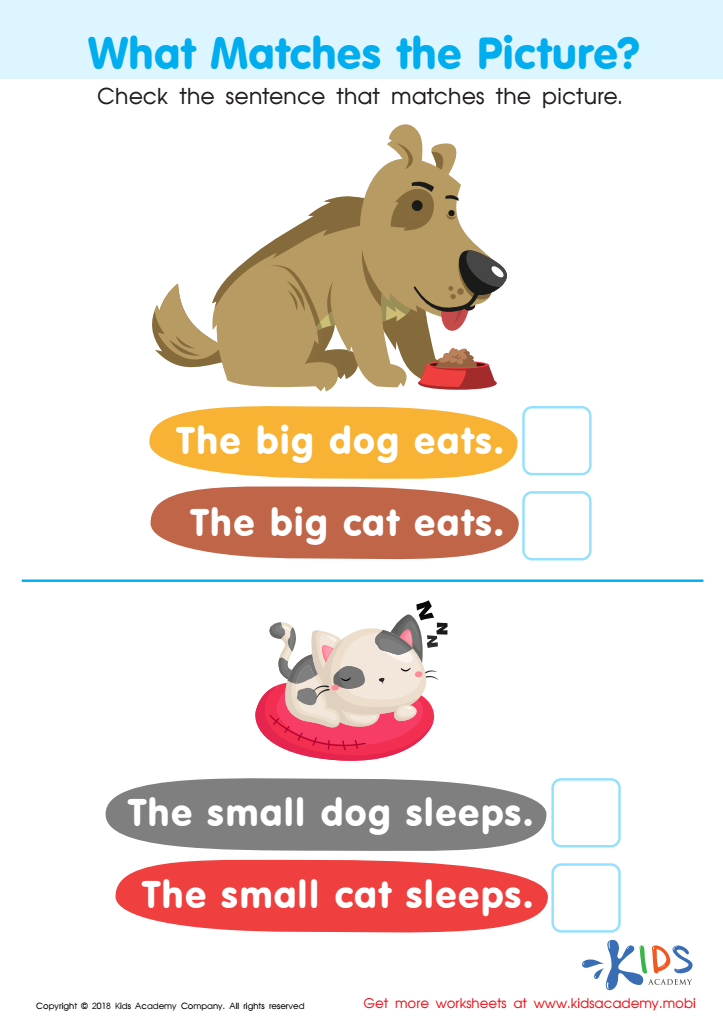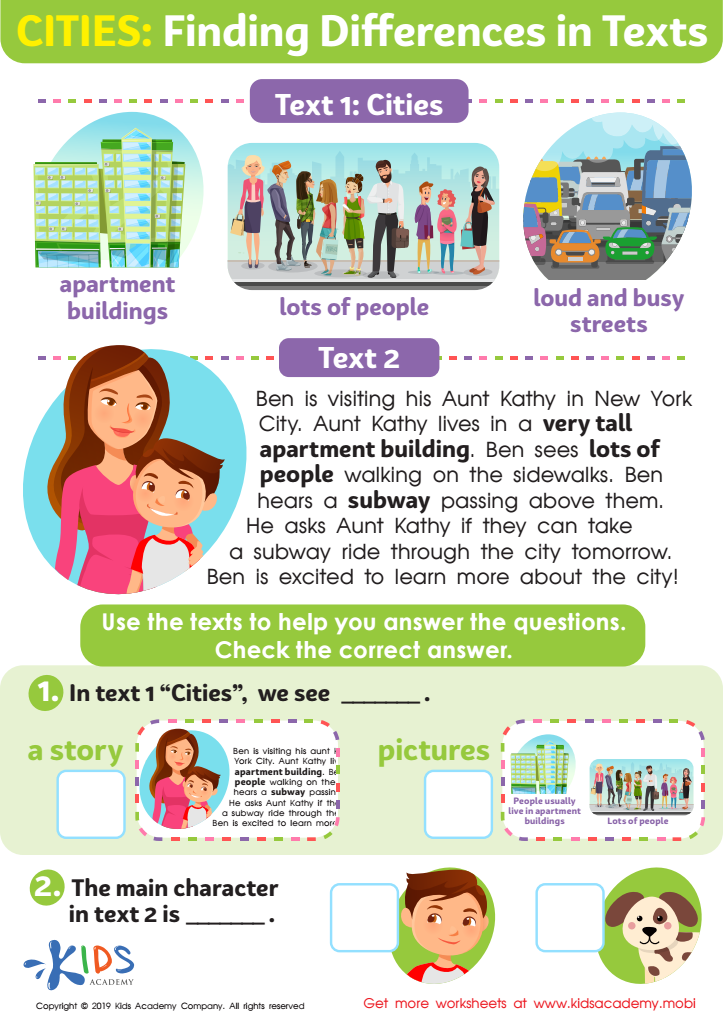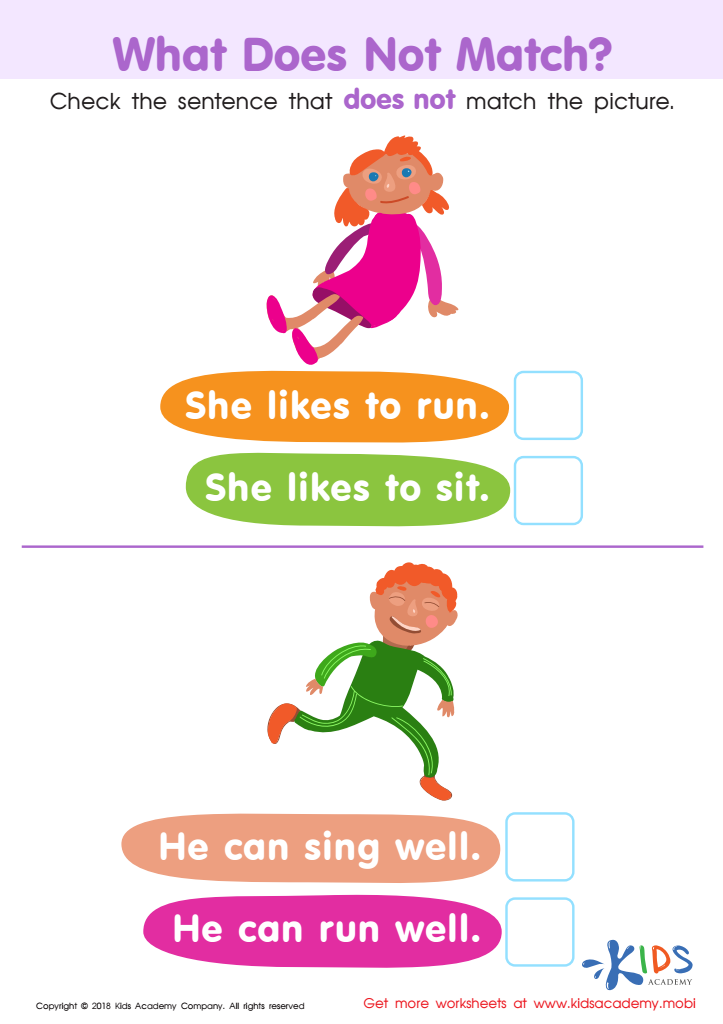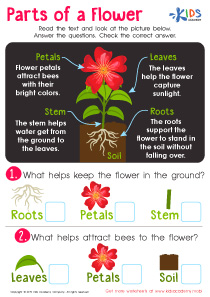Cognitive Development Easy Reading Fiction Worksheets for Ages 6-8
3 filtered results
-
From - To
Boost your child’s cognitive development with our Easy Reading Fiction Worksheets, designed specifically for ages 6-8. These engaging, age-appropriate worksheets help young learners sharpen their reading comprehension, critical thinking, and language skills through captivating stories and fun activities. Each worksheet promotes cognitive growth by encouraging children to make predictions, draw conclusions, and connect key themes. Perfect for home or classroom use, our meticulously crafted resources ensure children not only enjoy reading but also enhance their cognitive abilities. Foster a lifelong love of reading and learning with our expertly designed fiction worksheets tailored for early grade students.


What Matches the Picture? Worksheet


Cities: Finding Differences Worksheet


What Does Not Match? Worksheet
Parents and teachers should pay attention to cognitive development in easy reading fiction for ages 6-8 because it lays the foundation for critical thinking, comprehension, and problem-solving skills. During these formative years, children's brains are rapidly developing, making early engagement with fiction vital for their cognitive growth. Easy reading fiction helps facilitate vocabulary expansion, which directly impacts their ability to understand and articulate complex thoughts.
Moreover, these stories often incorporate simple plots and relatable characters, which aid in comprehension and retention. Young readers can better follow and recall events, enhancing their memory and narrative skills. Through engaging tales, children also learn to predict outcomes and make inferences, employing deductive reasoning and enhancing their interpretive skills.
Additionally, empathy and emotional intelligence are fostered when children identify with characters and navigate their feelings and challenges. Understanding character motives and outcomes supports emotional regulation and social skills development.
By focusing on cognitive development, parents and teachers provide children with the tools needed for academic success and lifelong learning. Making a habit of reading easy fiction books not only turns children into proficient readers but also nurtures a well-rounded, curious, and emotionally balanced individual.
 Assign to My Students
Assign to My Students





.jpg)














